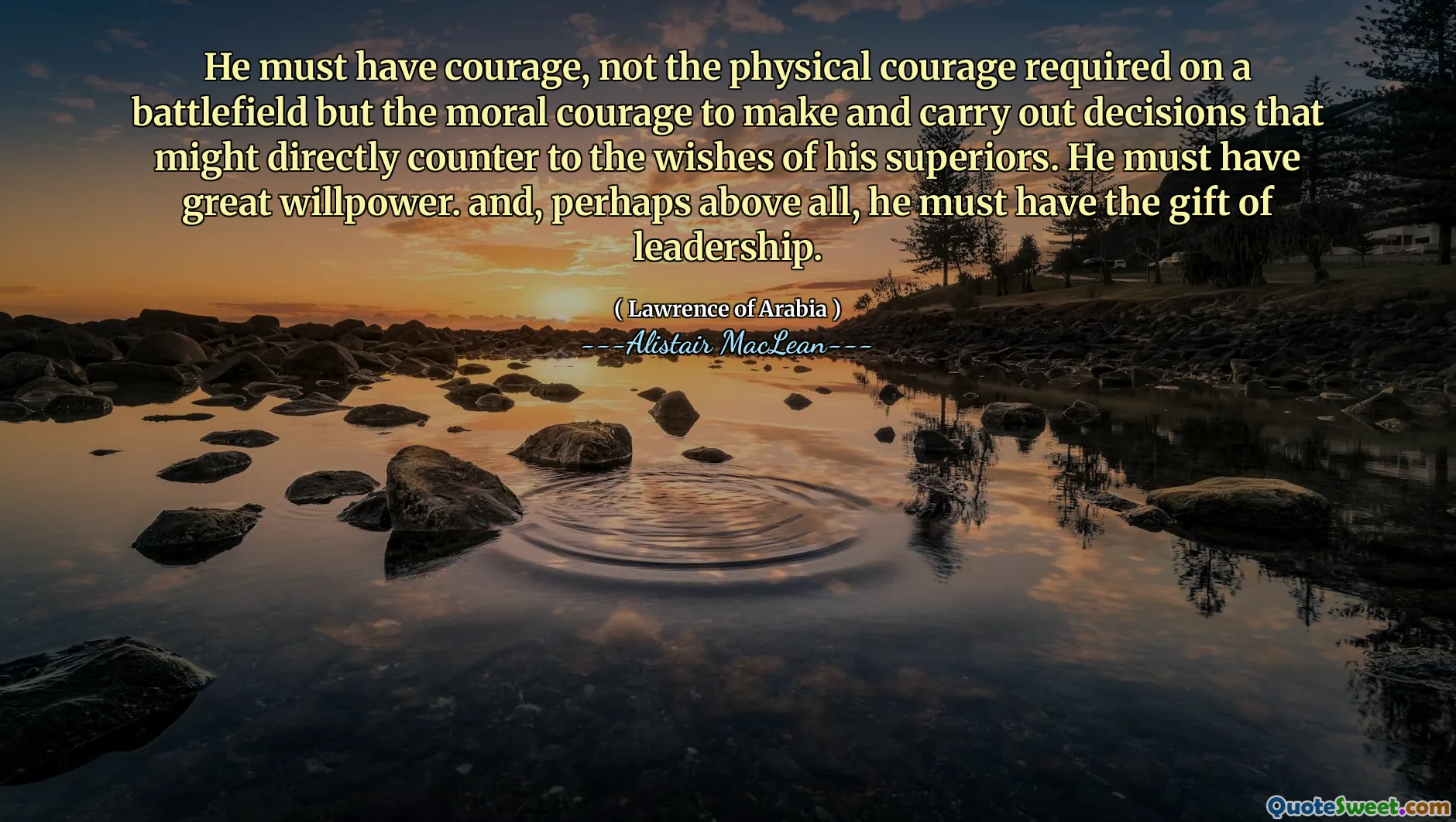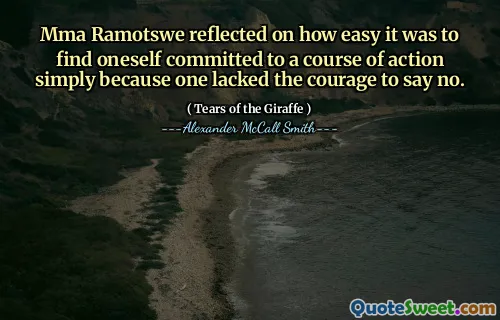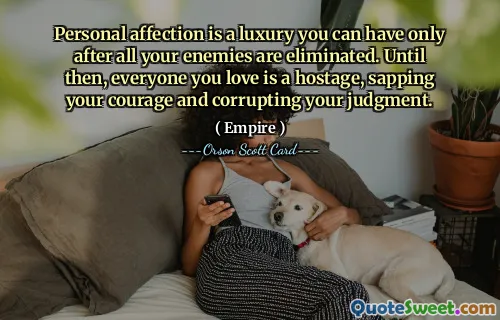
He must have courage, not the physical courage required on a battlefield but the moral courage to make and carry out decisions that might directly counter to the wishes of his superiors. He must have great willpower. and, perhaps above all, he must have the gift of leadership.
This quote offers a profound insight into the multifaceted nature of true courage and leadership. It emphasizes that courage is not merely about physical bravery, such as what is displayed in battle, but more significantly about the moral strength to stand by difficult decisions, especially when these decisions clash with the preferences or directives of those in authority. This kind of courage demands a resilient spirit and a capacity to remain steadfast in one's convictions despite external pressures. It makes one reflect on the essence of leadership—not simply guiding others during moments of clarity and agreement but also being willing to challenge the status quo when necessary.
The mention of "great willpower" highlights the inner discipline required to persist in the face of opposition or adversity. This quality is indispensable for leaders who must not only envision a path forward but also have the fortitude to undertake it, regardless of obstacles.
Perhaps the most compelling part of the quote is the recognition that moral courage and willpower culminate in what is termed "the gift of leadership." It suggests leadership is less a bestowed title and more an emergent quality that blends ethical conviction, resilience, and influence.
This perspective resonates strongly in any context—be it a military, professional, or personal setting—reminding us that leadership involves difficult choices, a commitment to principle, and the ability to inspire and drive change despite resistance. Ultimately, it challenges conventional ideas by valuing moral courage above physical, and inner strength above outward bravado.


